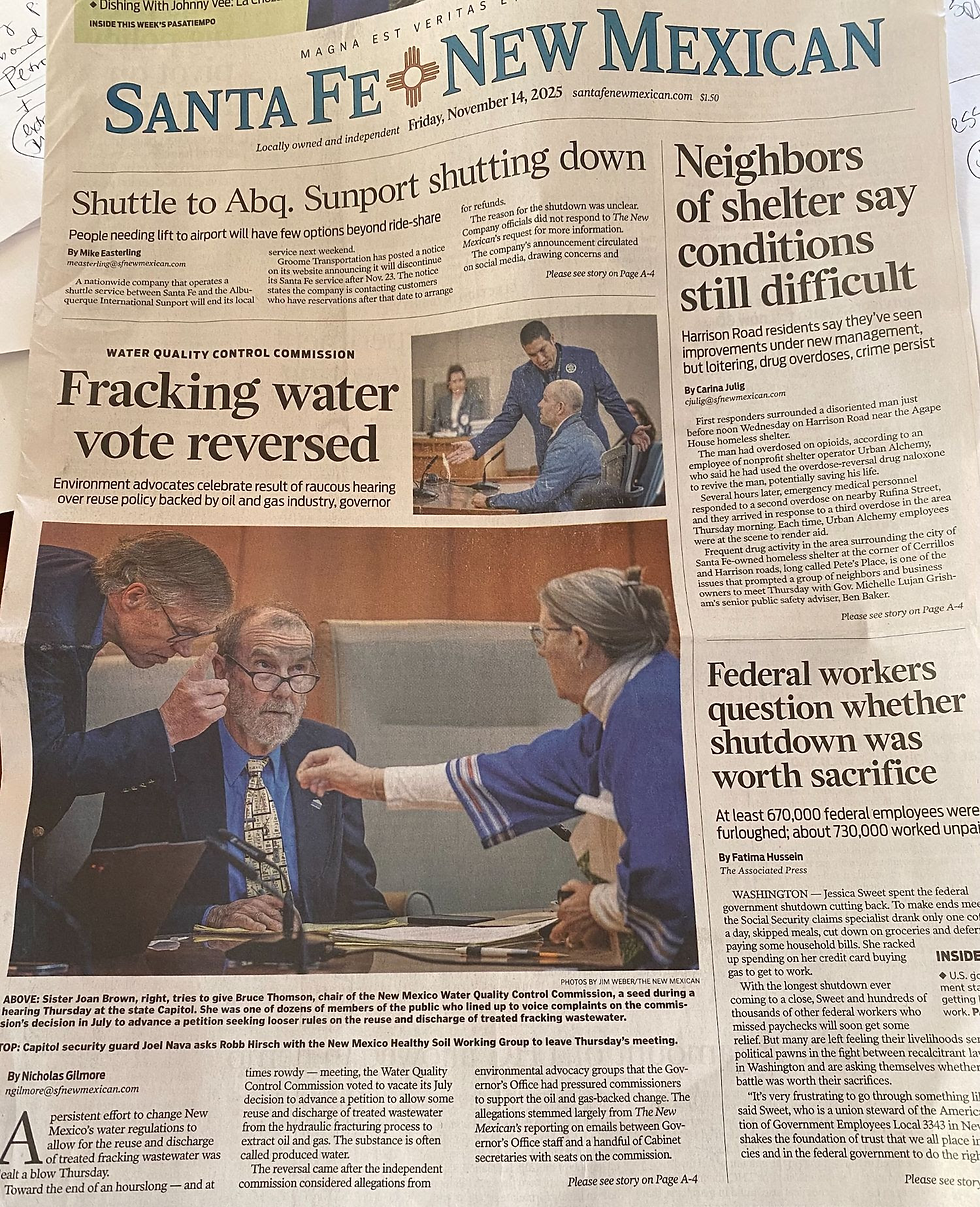Public Power Hearing and Critical Amendments to Clean Future Act
- New Energy Economy

- Jan 31, 2022
- 4 min read
Updated: Feb 23, 2022
FIRST! HB20 - A Memorial to Study a State-Level Public Utility is up for hearing tomorrow at 1:30PM in House Labor, Veterans and Military Affairs.
Public Power is a transformative answer to the climate crisis and can provide revenue in perpetuity for the people of New Mexico. Please reach out today to committee members below (preferably by phone) and urge them to VOTE YES, and then show up tomorrow to raise your hand in support and make public comment. Public Power talking points available here.
SECOND! While HB6 - the Clean Future Act awaits hearing in the next committee we have an opportunity to make it right.
In an eight hour hearing on Saturday, HENRC voted to table the Environmental Rights Act, a great disappointment, and then voted to pass HB6 - the "Clean" Future Act, without recommendation. The "without recommendation" designation means that legislators want and expect changes to this flawed climate bill before it advances to a floor vote. That expectation comes because of the people who spoke out during public comment from across New Mexico.
Something is building and it sure feels good: people coming together to hold elected officials accountable for real solutions. After nearly four hours of committee time there were still 200 people on the zoom call to give their input on HB6!
Advocating for change takes a lot of time and perseverance, it means listening to and elevating the lived experiences of New Mexicans, whether it’s Chili Yazzie’s experience as a grandfather and the lessons he is teaching his grandchildren in the face of climate uncertainty, or Julia Bernal's truth telling about the danger of carbon market schemes and their impact on sacred lands, or Kayley Shoup’s powerful story of bitter disappointment when listening to NMED’s claims of action while the on-the-ground lived experience in Carlsbad is of government failure to protect from the cumulative impacts of endless O&G permitting or relentless ongoing unpunished toxic waste discharges, or young people from YUCCA calling out the injustice inherent in the process by which elected leaders propose false solutions while paying lip service to the communities who have the most to lose.
We won against hydrogen (HB 4), though we must remain vigilant because the MLG administration might ignore this blistering defeat and move forward despite the peoples' will.
We dramatically changed the discourse regarding the Clean Future Act (HB6) due to the leadership of Pueblo Action Alliance (PAA) and YUCCA, who raised real questions about whether the government was proposing a hollow feel good bill or a carbon reduction bill consistent with economic and environmental justice.
And now we have a chance again to demand amendments to the Clean Future Act before its next hearing in the House Government, Elections and Indian Affairs Committee (HGEIC). The Clean Future Act sets goals consistent with IPCC guidelines, but the plan it proposes to reach that goal is inadequate and unjust. Together we are calling for:
Advance the start date of the rulemaking. The 2025 deadline to initiate rulemaking represents an unjustifiable delay. Given the time needed to hold hearings, take comments, approve a rule, and defend it from court challenges, a final rule could be delayed until 2027 or later. This would provide little time to achieve 2030 goals. We recommend that rulemaking begin no later than January 1, 2023 and that the law should set a deadline for implementation before June 30th, 2024. (Read more here.)
Remove language referencing “net emissions,” "credits" and “offsets.” The construct of “net emissions” should be entirely removed, along with language describing “offsets” and "carbon credits," which only provide the O&G industry and the state an accounting trick to achieve “net emissions” goals while failing to sufficiently reduce actual emissions and endangering indigenous and low income communities. (Learn more about the dangers of carbon offset/trading schemes here.)
Count emissions estimated to result from export of NM gas, and oil. To advance real climate goals, we call for including a reporting requirement for exported fossil fuels. While NM does not regulate out-of-state downstream emissions from fossil fuels, it is important that we understand the GHG impacts of those fuels. We suggest adding language to include reporting on “estimated current and projected emissions from all fossil fuels produced in New Mexico and exported for use outside of the state.” (Learn more about New Mexico's downstream emissions at permianclimatebomb.org)
The recent federal district court decision regarding oil and gas leases in the gulf held that failure to account for downstream emissions was the equivalent of flawed modeling, and amounted to "classic arbitrary action." We must hold the MLG administration to the same standard: it cannot continue to approve O&G and ignore cumulative impacts and downstream emissions, because this amounts to classic arbitrary action and, most importantly, is incompatible with conditions consistent with LIFE!
We are calling on all climate activists to call and email the bill's sponsors to demand amendments based on the above points. New Energy Economy has prepared a one pager, a detailed analysis of the bill and webpage where you can learn more about the dangers of carbon offset schemes and the timeline laid out in this bill.
FINALLY - HB 37 - Community Energy Efficiency Development Block Grant Act is up for a vote in HENRC tomorrow morning at 8:30AM.
The bill will improve utility affordability, reduce energy burden, and increase utility access of low-income New Mexicans. Making energy efficiency improvements in low-income housing cuts energy bills for these New Mexicans, improves the quality of affordable housing stock, and will help New Mexico achieve its zero-carbon electricity target. Learn more here, and get more facts about utility disconnection rates in NM here.







Comments